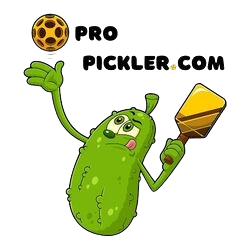Experiencing losses is an inevitable part of any sport, including pickleball. Whether you’re a veteran player or a newbie, mastering the art of handling defeats is crucial for growth and enjoyment.
Here, we delve into strategies and anecdotes from fellow pickleball enthusiasts on how to transform losses into valuable learning experiences.
Embrace the Learning Journey
Facing defeat can be challenging, but it’s also a golden opportunity for growth. A member of our Pickleball Union Pro community put it succinctly: “I subscribe to the philosophy, ‘I either win or learn.’ I’ve been in matches where we were outclassed by higher-level opponents and others where we expected to win but didn’t. Both scenarios offered immense learning opportunities. I analyze my performance, noting what I did well and what needs improvement. Losing is inherent to any sport; what matters is the lessons you draw from it.”
This mindset underscores the importance of reflecting on your game to identify areas for enhancement. Instead of fixating on errors, concentrate on strategies for improvement.
Focus on specific elements of your game that require attention, such as your backhand or third shot. This targeted practice approach will help you return to the court stronger.
Maintain Composure During Tournaments
Tournaments present a unique set of challenges compared to regular games. One player recounted, “During my first tournament, I was overwhelmed with stress, agonizing over every unforced error.” Feeling the pressure in competitions is natural, but it’s crucial to manage this stress and avoid letting it escalate to the point of frustration.
Another player offered valuable advice: “Identify the mental state in which you perform best. Are you more effective when you’re relaxed and loose, or when you’re intense and focused? Discover what works for you and strive to maintain that mindset.”
Set Achievable Goals
Clarifying your objectives in pickleball can help manage expectations and reactions to losses. Are you aiming to ascend the competitive ranks, or are you playing for enjoyment? If you’re serious about improvement, adopt a meticulous approach to analyzing your game.
As one player wisely noted, “There’s no such thing as a game you should have won. If you were meant to win, you would have.”
Learn from the Pros
Even top-tier players, like the Johns brothers, experience defeats. When questioned about their recent losses, they responded with composure, focusing on their game and learning from their mistakes without becoming upset.
A fellow Pickleball Union Pro player shared, “I enjoy watching the pros on YouTube and in person. Despite their exceptional skills, they still make mistakes and have both good and bad days. Often, it’s about adapting to a new opponent’s style and the specific matchup.”
Their calm and collected demeanor teaches us a valuable lesson: both winning and losing are integral parts of the game.
Develop Positive Coping Strategies
Finding healthy ways to cope with losses is essential. One player mentioned, “Coping requires time and reflection. This morning, I woke up eager to get back to work.”
Engaging in activities you enjoy, such as watching other matches or planning for the next tournament, can help shift your focus from the loss to future opportunities.
Seek Feedback and Support
Don’t hesitate to ask your partner or peers for feedback. As one player mentioned, “If you have a good relationship with your partner, ask them what weaknesses they’ve noticed in your game.”
Constructive criticism is invaluable for identifying areas for improvement. Additionally, discussing your experiences with others can provide comfort and new insights.
Keep the Fun Alive
Ultimately, remember why you started playing pickleball in the first place. “Remember how much you love the game and how much fun you have playing it.”
Maintaining the fun in the game can ease the sting of losing and help you stay positive.
Additional Tips
- Mix Up Your Routine: Try playing with different partners or in new locations to keep things fresh and exciting.
- Celebrate Small Wins: Reward yourself for minor achievements, like nailing a difficult shot or improving your serve.
- Visualize Success: Picture yourself executing the perfect shot or winning a match.
- Host a Pickleball Social: Organize a fun, low-pressure game day with friends to remind yourself why you love the sport.
Conclusion
Embrace losses as opportunities to learn, manage your stress effectively, and set realistic goals. Take inspiration from the pros, find positive coping mechanisms, seek feedback, and most importantly, remember to have fun.



